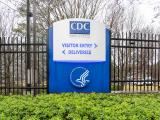Sep 10, 2009 (CIDRAP News) – Today was the 12th year the National Foundation for Infectious Diseases (NFID) has held a press conference to discuss its expectations for the upcoming flu season, but discussions were far from routine, reflecting uncertainty surrounding the pandemic flu strain and the complexity of launching two vaccine campaigns.
Kathleen Sebelius, secretary of the US Department of Health and Human Services (HHS), told reporters that it's hard to make predictions about how the flu season will play out, but she said urging the public to get their seasonal flu vaccines—available now—is a good place to start. "It's important to not lose sight of the fact that seasonal flu takes its toll year in and year out," she said.
The HHS expects 116 million doses of the seasonal flu vaccine to be distributed to clinics and immunization sites, she said. Yesterday, vaccine experts, in a National Influenza Vaccine Summit conference call, slightly lowered their vaccine production estimate from the 118 million doses projected earlier. They also noted some vaccine providers are having trouble getting the doses they ordered because of prebooking problems.
Tom Frieden, MD, director of the Centers for Disease Control and Prevention (CDC), said 40 million doses have already been delivered to physicians' offices. He said it's too soon to predict how well the seasonal vaccine will match the circulating seasonal flu strains. In March, researchers from British Columbia identified a drifted strain of the seasonal H3N2 flu virus, the Canadian Press (CP) reported. In July, laboratory officials in the southern hemisphere reported finding a drifted seasonal H3N2 virus strain, according to another CP report. The findings raise the threat of a vaccine mismatch for the northern hemisphere's upcoming flu season.
"We'll be tracking to see what happens," Frieden said.
Regarding the vaccine supply issue, he said that although there may be spot shortages, companies have ample supplies of seasonal flu vaccine.
Influenza experts speaking at today's NFID press conference had tough words for healthcare workers who opt not to receive their annual flu immunization. Gregory Poland, MD, a virologist at the Mayo Clinic in Rochester, Minn., who represented the American College of Physicians today, said, "It is an embarrassing fact that 60% don't get vaccinated. I'm sorry, but it is not about you. It's about the patients you're privileged to care for." The medical literature suggests that healthcare worker flu vaccination can reduce death rates in intensive care units by as much as 60%, he said.
Poland praised California and New York for making flu vaccines for healthcare workers mandatory, and he urged other states and medical facilities to do the same. "This should be a priority for all institutions that take patient safety seriously," he added.
The experts urged the public not to be complacent about seasonal flu, despite the singular focus on the pandemic H1N1 virus. David Tayloe, MD, a pediatrician in Goldsboro, NC, who is president of the American Academy of Pediatrics, says parents sometimes see flu as just a nuisance. "But it can rapidly act savagely and fatally," he said.
Nancy H. Nielsen, MD, PhD, an internist in Buffalo, NY, and immediate past president of the American Medical Association, spoke to the importance of getting the vaccine out early and the key role physicians will play in the administration of both vaccines. "Public health is every physician's second specialty. All physicians are going to be involved in helping their patients," she said.
She added that getting the seasonal vaccine into patients' arms as early as possible will help free up physicians to assist in the rollout of the pandemic H1N1 vaccine when it becomes available in mid October.
Tayloe added that juggling two vaccine campaigns "isn't going to be pretty, but if we get the kids in now, then we can tackle the H1N1 vaccine later."
Cora L. Christian, MD, MPH, a family physician in the US Virgin Islands and a member of the Association for the Advancement of Retired Persons (AARP) board of directors, says she tells patients who see her while she has a seasonal flu vaccine supply, "I'll give you what I have now."
"The will of the physician to make sure it [flu vaccination] happens, to me, is the underlying message," she said.
See also:
Sep 9 CIDRAP News story "Providers having trouble getting seasonal flu vaccine"
NFID influenza portal
http://www.nfid.org/influenza/




















